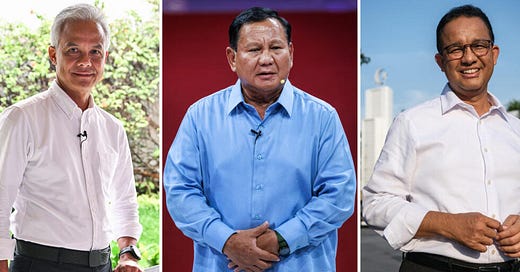UPDATES:On February 14, Indonesians will participate in a significant event known as the "festival of democracy," involving the election of a new president, vice president, parliamentary members, and local representatives. This single-day election, the largest of its kind globally, will involve over 204 million registered voters out of the country's pop…
© 2025 Dr. Digby James Wren
Substack is the home for great culture




